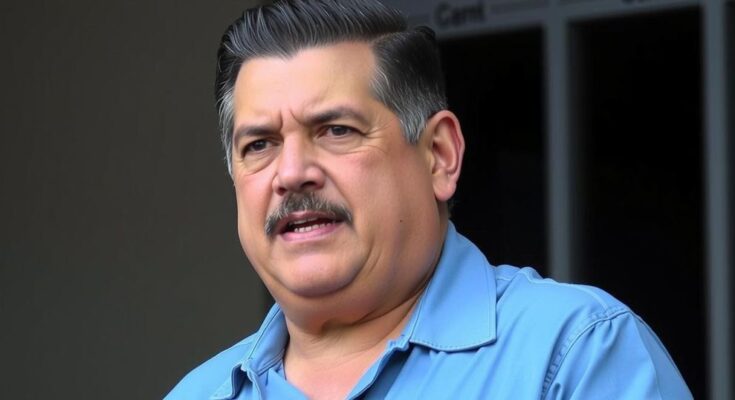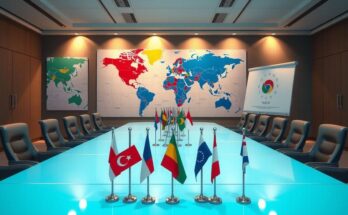Colombia proposes the custody of Argentina’s Embassy in Caracas to protect aides of opposition leader María Corina Machado amid escalating tensions with the Venezuelan government. Ongoing negotiations involve the possibility of cooperation between Colombia and Venezuela, contingent on releasing detained individuals. The situation reflects Colombia’s growing involvement in Venezuela’s political crisis, marked by repression against dissent and allegations of human rights violations.
Colombia has proposed to take custody of Argentina’s Embassy in Caracas to help safeguard six aides of opposition leader María Corina Machado, who have been residing there since March amid rising tensions with the Venezuelan government. Foreign Affairs Minister Luis Gilberto Murillo, speaking at a conference in San Andrés, indicated that this effort is part of ongoing discussions with Venezuela aimed at ensuring the safe passage of these officials. He noted that Venezuela appears to be open to cooperating, contingent upon Argentina releasing an unnamed individual connected to the Venezuelan government, as well as Ecuador releasing former Vice President Jorge Glas, who has been detained since April.
The situation highlights Colombia’s increasing involvement in Venezuela’s ongoing political crisis, particularly following President Nicolás Maduro’s repressive actions against dissenters after his controversial re-election. The aides of Machado transitioned to the Argentine Embassy as they faced potential arrest due to alleged acts of terrorism, a claim made by the Venezuelan government. The conflict has led to strained diplomatic ties, especially after Argentina severed relations with Venezuela and assigned Brazil to manage their diplomatic mission.
Recent actions by Venezuelan police have heightened concerns, with reports of intimidation tactics aimed at the Embassy. The six opposition figures, including campaign manager Magalli Meda and advisers Pedro Urruchurtu and Claudia Macero, have shared distressing updates on social media about the lack of basic necessities, exacerbated by police efforts to restrict access to resources. The United Nations Human Rights Council has condemned these actions as violating international law.
Amid this turmoil, both Maduro and González, the opposition’s stand-in candidate who fled to Spain, have claimed intentions to assume office when the new presidential term commences on January 10. Murillo stated he had traveled to Brazil and Ecuador to facilitate discussions under the direction of President Gustavo Petro. Brazil has asserted that it will maintain control of the Embassy until Argentina designates another country to take over, with the Argentine government condemning the situation as a violation of fundamental human rights in Venezuela.
The current political landscape in Venezuela is marked by significant unrest and strife, following President Nicolás Maduro’s contentious re-election, which has led to widespread dissent. Opposition leaders, including María Corina Machado, have garnered support but face severe crackdowns by the Maduro administration. Colombia’s involvement is emerging as a means to navigate these complexities, particularly regarding the safety of individuals aligned with the opposition. The actions of Venezuela’s police against the Argentine Embassy and its occupants have drawn international attention and condemnation, further complicating diplomatic relations in the region. The situation illustrates the broader implications of human rights abuses and international diplomatic efforts to address them.
In summary, Colombia’s offer to take custody of the Argentine Embassy in Caracas underscores the deepening political crisis in Venezuela and the international community’s response to it. The potential cooperation between Colombia and Venezuela hinges on mutual concessions, highlighting the delicate balance of diplomacy in the face of severe human rights violations. As tensions escalate and the political landscape evolves, the safety of opposition leaders and the potential outcomes of ongoing negotiations remain critical to the region’s stability.
Original Source: www.batimes.com.ar




